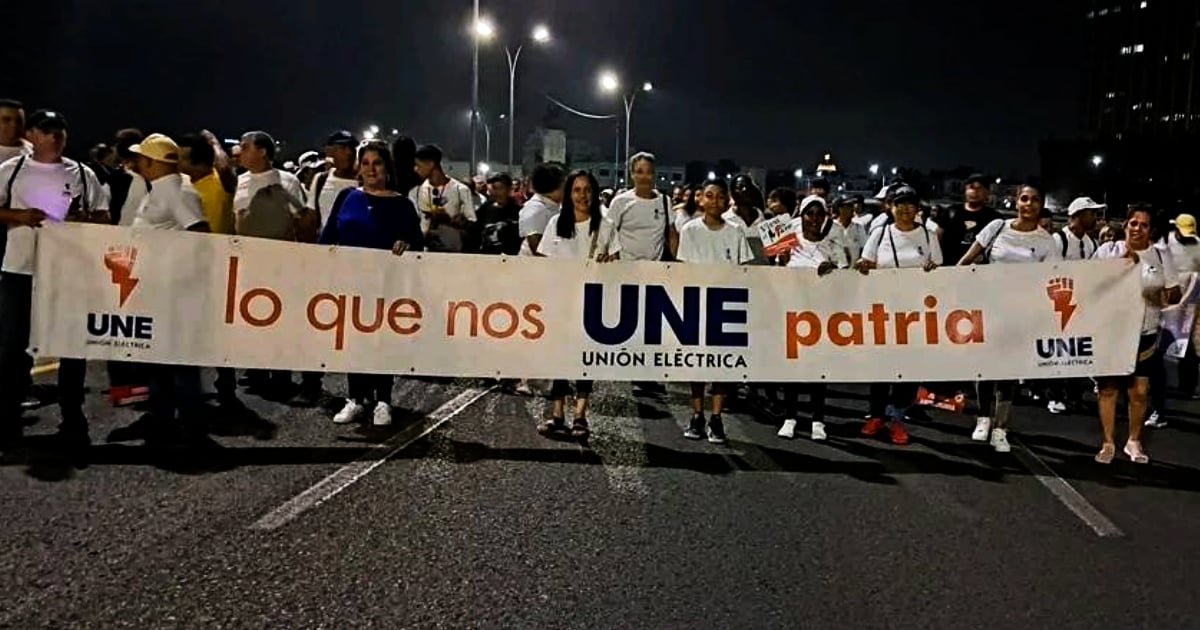
Related videos:
A recent survey conducted on social media by CiberCuba highlighted the marked disinterest of the Cuban population regarding the March of the Combatant People, organized by the government to show support for the regime.
According to the results obtained, most participants prefer to leave the country rather than attend the official mobilization.
Conducted via Messenger and Telegram, the survey yielded a total of 468 votes, of which a significant 72% stated they would prefer to "leave the country," clearly reflecting the accumulated frustrations within the population.
Only 4% expressed an intention to attend the march, while 24% responded with "none of the two," highlighting the apathy towards the proposed alternatives, as well as the existential situation of large sectors of the population for whom the possibility of "escaping" the Island seems unthinkable due to its impracticality.
The call for the March of the Fighting People has generated controversy in Cuba and among the international community.
Announced by the authorities as a response to the country's "urgent problems," Cubans have expressed widespread rejection of the event, which is largely viewed as a propaganda act that squanders resources and resolves nothing during a critical time for the nation.
In recent days, CiberCuba captured the public sentiment about the march, observing widespread indignation and discomfort regarding its announcement on social media. Many questioned how the government allocates limited resources to these forced mobilizations, even amidst a severe economic and energy crisis.
Comments such as "They do not represent me" and "I prefer to seek a future outside of Cuba" reflect the growing discontent among Cubans, who perceive the marches as a propagandistic attempt that is disconnected from their actual needs.
The survey conducted by CiberCuba not only highlights the widespread rejection of the march but also a harsh reality: for many, the only viable option is to leave the country. The lack of interest in participating in official events indicates an ever-widening gap between the Cuban people and their leadership.
Frequently Asked Questions about the March of the Combatant People and Discontent in Cuba
Why do most Cubans not want to participate in the March of the Fighting People?
The survey conducted by CiberCuba revealed that 72% of participants would prefer to leave the country rather than attend the march, highlighting significant discontent with the Cuban regime. Many view the march as a propaganda act that fails to address the real needs of the population, such as the economic and energy crisis facing Cuba.
What reasons do Cubans have for rejecting the marches organized by the government?
The rejection is mainly due to the perception that these marches are propaganda events that consume resources without providing solutions to the country's urgent problems. Additionally, there is a widespread feeling of frustration over the lack of freedoms and political repression, which discourages the public from participating in acts of support for the regime.
How has the international community reacted to the March of the Fighting People?
The international community has viewed the call for the March of the Combatant People with skepticism and criticism, considering that it does not address Cuba's structural problems. The march is seen as a government strategy to divert attention from the internal crisis and project an image of unity that does not reflect the true situation in the country.
What impact is the current economic and energy crisis having in Cuba?
The economic and energy crisis has led to prolonged power outages, shortages of food and medicine, and a collapse of basic services, intensifying social unrest. The population is facing increasingly difficult living conditions, resulting in despair and a growing desire to emigrate in search of better opportunities.
Filed under: